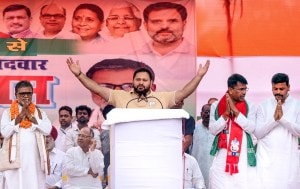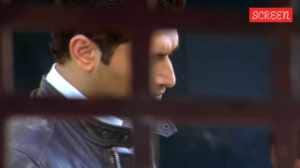Another Iraq leak hits Blair in run-up to elections
Publication of a secret 2003 memo from Britain’s top government lawyer questioning the Iraq war’s legality buffeted Prime Minister...

Publication of a secret 2003 memo from Britain’s top government lawyer questioning the Iraq war’s legality buffeted Prime Minister Tony Blair on Thursday, just a week before the May 5 election.
Trailing in opinion polls, Opposition parties pounced on the report from Attorney General Lord Peter Goldsmith as showing Blair had deceived Britain.
Blair, confident Labour’s strong economic record will win him a third term, called the affair ‘‘a damp squib’’. Having refused past demands to release the memo, Blair authorised full publication on Thursday to try and defuse the row after excerpts were leaked to British media.
The deeply unpopular Iraq war remains Blair’s Achilles Heel, enabling foes to attack him on trust and integrity. Thursday’s cacophony of claims that Blair leant on Goldsmith to swallow his doubts echoed accusations the government also pressured intelligence services to hype evidence of Saddam Hussein’s banned arms before the 2003 US-led invasion.
The March 7, 2003 document creating all the furore shows that Goldsmith cast doubt on the legal grounds of war just days before Blair ordered troops in.
Goldsmith said then ‘‘a court might well conclude’’ UN Security Council resolutions at the time did not authorise war and that ‘‘the safest legal course’’ was a fresh UN motion.
But he was not categorical, also saying Britain could build ‘‘a reasonable case’’ for war based on two earlier UN resolutions if it had ‘‘hard evidence’’ of wrongdoing by Saddam Hussein. Ten days later, when Britain had failed to get a new resolution, Goldsmith gave the cabinet and parliament short written advice that war was legal —— and mentioned no doubts.
Blair, President George W. Bush’s closest foreign ally, denied Goldsmith bowed under political pressure.
Looking frustrated at times at a news conference intended to trumpet Labour’s business policies, Blair said Goldsmith’s conclusion was unequivocal and that he had expressed his full thoughts in person at a Cabinet meeting. —Reuters







- 01
- 02
- 03
- 04
- 05
























